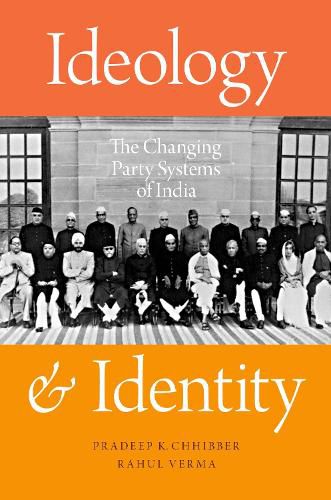Readings Newsletter
Become a Readings Member to make your shopping experience even easier.
Sign in or sign up for free!
You’re not far away from qualifying for FREE standard shipping within Australia
You’ve qualified for FREE standard shipping within Australia
The cart is loading…






Indian party politics, commonly viewed as chaotic, clientelistic, and corrupt, is nevertheless a model for deepening democracy and accommodating diversity. Historically, though, observers have argued that Indian politics is non-ideological in nature. In contrast, Pradeep Chhibber and Rahul Verma contend that the Western European paradigm of ideology is not applicable to many contemporary multiethnic countries. In these more diverse states, the most important ideological debates center on statism-the extent to which the state should dominate and regulate society-and recognition-whether and how the state should accommodate various marginalized groups and protect minority rights from majorities. Using survey data from the Indian National Election Studies and evidence from the Constituent Assembly debates, they show how education, the media, and religious practice transmit the competing ideas that lie at the heart of ideological debates in India.
$9.00 standard shipping within Australia
FREE standard shipping within Australia for orders over $100.00
Express & International shipping calculated at checkout
Stock availability can be subject to change without notice. We recommend calling the shop or contacting our online team to check availability of low stock items. Please see our Shopping Online page for more details.
Indian party politics, commonly viewed as chaotic, clientelistic, and corrupt, is nevertheless a model for deepening democracy and accommodating diversity. Historically, though, observers have argued that Indian politics is non-ideological in nature. In contrast, Pradeep Chhibber and Rahul Verma contend that the Western European paradigm of ideology is not applicable to many contemporary multiethnic countries. In these more diverse states, the most important ideological debates center on statism-the extent to which the state should dominate and regulate society-and recognition-whether and how the state should accommodate various marginalized groups and protect minority rights from majorities. Using survey data from the Indian National Election Studies and evidence from the Constituent Assembly debates, they show how education, the media, and religious practice transmit the competing ideas that lie at the heart of ideological debates in India.